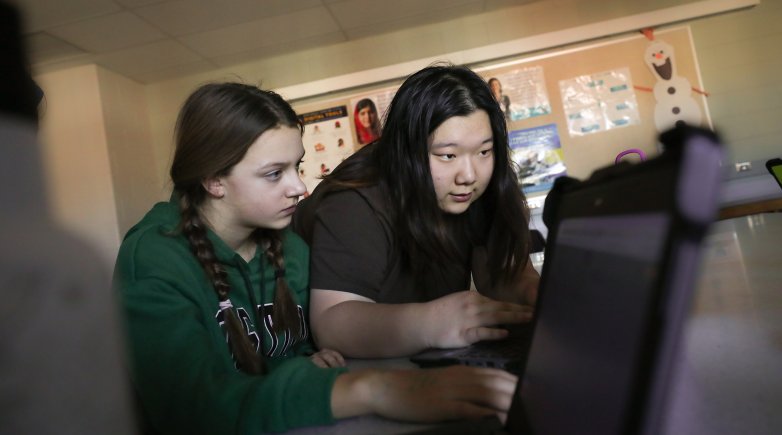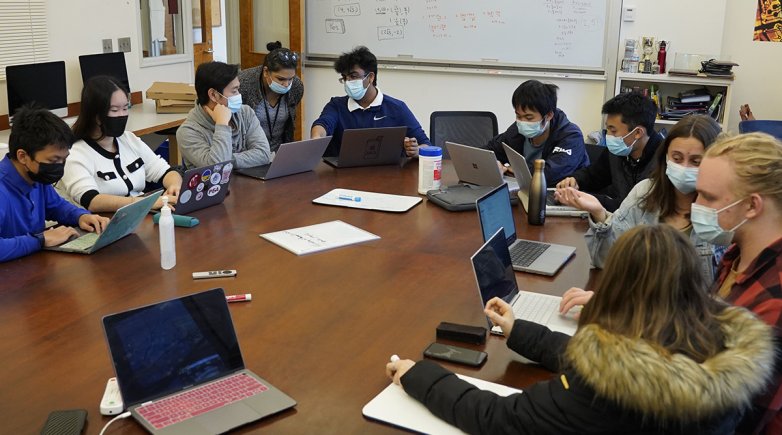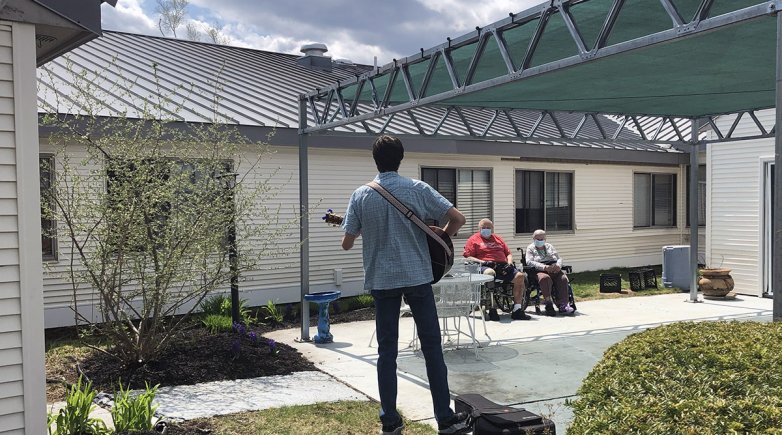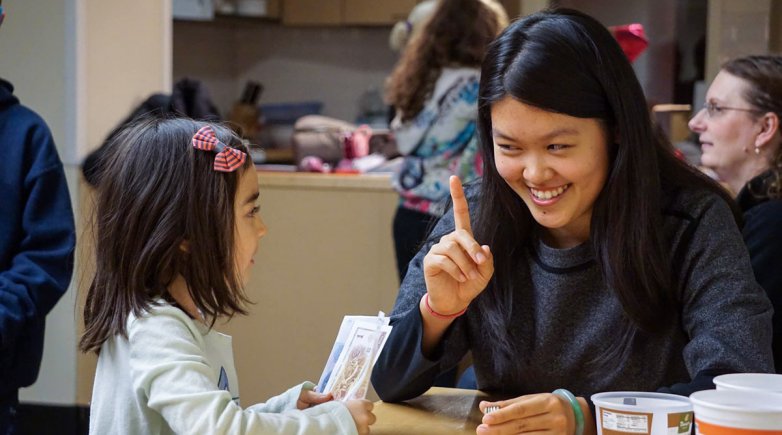At your service: ESSO embodies non sibi
With Girls Who Code, Exeter students act on the Academy's goal to unite knowledge and goodness.
Joey Dong '23 is co-head of Girls Who Code, an ESSO club that helps female-identifying students in grades 6-8 learn to write code.
Students fill the hallways of the Cooperative Middle School just after 2 p.m. on a recent Wednesday afternoon. As hundreds of sixth, seventh and eighth graders check their lockers and headed for the exits, six members of the Exeter Student Service Organization group Girls Who Code make their way through the noisy crowd to a second-floor classroom. A cohort of middle school girls soon joins them, choosing seats at a large rectangular table in the middle of the room. They flip open their laptops, ready for another course in the basics of the programming language Python.
Like all of the more than 50 student-run clubs under the ESSO umbrella, Girls Who Code is a free service program offered by Exeter students to members of the local community. Since 1967, ESSO has built on the Academy’s founding principle of non sibi, or “not for oneself,” by sending students out into the community to serve as volunteers. “ESSO presents Exonians with an opportunity to get involved in the society in which they live,” a co-director of the organization told The Exonian in 1968.
The Girls Who Code group is affiliated with the international nonprofit of the same name, which aims to help close the longstanding gender gap in programming and other technology fields. After meeting online only during the earlier phase of the pandemic, the group returned to in-person meetings this fall, beginning with smaller gatherings at a local library.
This is only their second meeting at the middle school, located about 10 minutes from Exeter’s campus in the neighboring town of Stratham, and the group is still getting to know each other. They do a round of introductions (name, hometown, favorite ice cream flavor) and a review of what they did last session (making sentences with variables) before club co-head Joey Dong ’23 kicks things off in earnest.
“Could we maybe do a little exercise? Can you guys make a variable that stores how much money you have…and then make a print statement that says ‘I have however many dollars in my bank account’?”
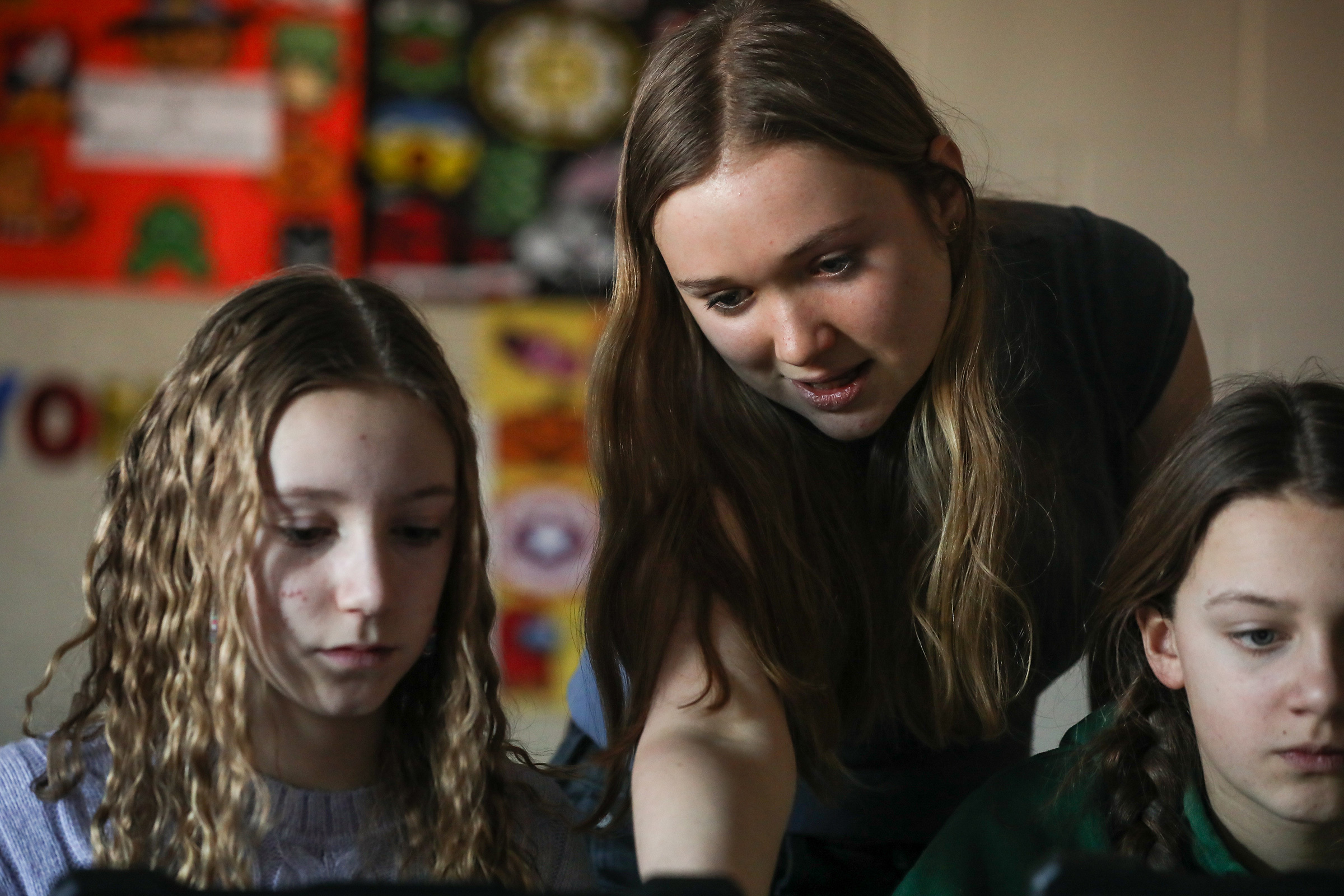
As their students turn to their screens, the Exonians move around the room, offering help. Between exercises, they take turns explaining the concepts behind each one. Dong, who has been involved with Girls Who Code since the summer after her prep year, created the curriculum they’re using for a non-profit she co-founded, The Dream AI, which focuses on teaching machine learning algorithms.
Pranavi Vedula ’25 goes over the three forms of data in Python: strings, numbers and Booleans. “[Boolean] is really just a fancy way of saying true or false,” she explains. “You can set certain conditions to be true or false, then execute your code to happen based on that outcome.”
A day student from Brentwood, New Hampshire, Vedula has now experienced Girls Who Code from both perspectives, having learned from Dong and others when she was a student at the Cooperative Middle School herself. “I tried doing a little bit of coding here and there when I was younger, but it didn't ever click and I didn't enjoy it until after Girls Who Code,” she says. “The mentors made me feel seen, and it was the first time I felt seen for who I was. I didn't feel overpowered, and I didn't feel stupid.”
Now that she’s a student at the Academy herself, Vedula enjoys paying it forward by teaching coding to younger students. “Being a female in a STEM field is difficult because it's a very male dominated field,” she says. “Having that space to connect with other female students is really valuable.”
The middle schoolers in the class agree. “[Boys] are chaos,” one sixth grader puts it succinctly. “It's a lot harder to learn with the noise, the funny jokes, stuff like that,” another adds.
By the time class ends, the students have written code that subtracts money from their bank accounts to “buy” an array of things, from $10 cookies to UFOs for a Martian voyage, and started programming an input function that asked people their favorite ice cream flavor. They’ve also polished off a couple of bags of cookies — with some assistance from their Exonian teachers.
“Technology is such an influential field right now, [and] we can't just have the people behind technology be male-dominated, because that's going to be carried through in the products and in technology itself,” Dong says of her dedication to the Girls Who Code mission. “We want technology to be fair to everybody.”
